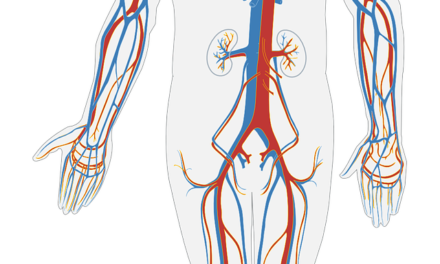Steroids, also known as corticosteroids, are powerful medications prescribed for a variety of conditions. These medications provide immense relief by reducing inflammation and suppressing the immune system. However, it is crucial to recognize the importance of tapering off steroids after a prescribed course. Tapering refers to gradually decreasing the dosage of steroids over time. This article aims to shed light on the significance of tapering steroids and their positive impact on patients’ overall well-being. Additionally, we will explore the UK’s approach to tapering steroids and the benefits it offers to individuals seeking recovery.
Understanding Steroids and their Role in Treatment:
Steroids are widely used in medical practice to manage a range of conditions such as asthma, autoimmune disorders, allergies, and certain types of cancer. These medications work by reducing inflammation, relieving symptoms, and enhancing the body’s ability to heal. They can be administered orally, topically, or via injections, depending on the condition being treated. While steroids provide immediate relief, it is essential to acknowledge that long-term usage may lead to various side effects. Hence, tapering plays a crucial role in maintaining a delicate balance between therapeutic benefits and potential risks.
The Importance of Tapering Steroids:
Tapering steroids is a process that involves gradually reducing the dosage over a period of time, allowing the body to adjust and gradually regain its natural hormone production. Abruptly stopping steroid use can result in adrenal insufficiency, a condition where the body fails to produce enough cortisol. By tapering, the adrenal glands have an opportunity to gradually resume normal cortisol production, minimizing the risk of withdrawal symptoms and other complications.
Promoting Natural Hormone Production:
gives the adrenal glands a chance to regain their ability to produce cortisol, a vital hormone for regulating the body’s stress response and metabolism. When steroids are abruptly discontinued, the adrenal glands may remain dormant, causing a temporary hormonal imbalance. Tapering ensures a smooth transition, allowing the body to naturally resume cortisol production and restore hormonal equilibrium.
Avoiding Withdrawal Symptoms:
Abrupt discontinuation of steroids can lead to withdrawal symptoms, including fatigue, joint pain, muscle weakness, and mood swings. Tapering off steroids helps to minimize these symptoms by allowing the body to adapt gradually to reduced medication levels. By tapering, individuals can experience a smoother transition and mitigate the discomfort associated with sudden withdrawal.
The UK’s Approach to Tapering Steroids:
In the United Kingdom, healthcare providers emphasize the importance of tapering steroids as part of a comprehensive treatment plan. Medical practitioners in the UK closely monitor patients who have been prescribed steroids and develop individualized tapering schedules based on the patient’s condition, response to treatment, and other factors. This approach ensures that patients can safely reduce their steroid intake while minimizing the risk of complications.
The UK’s healthcare system recognizes that tapering steroids is vital for long-term recovery and strives to educate both patients and healthcare providers about their importance. This collaborative approach fosters a positive and proactive environment where patients feel empowered and supported throughout the tapering process.
Conclusion: Tapering steroids is an essential aspect of medical treatment that promotes optimal recovery and reduces the risk of adverse effects. By gradually decreasing the dosage, patients allow their bodies to readjust and resume natural hormone production, while minimizing the potential for withdrawal symptoms. The UK’s approach to tapering emphasizes the significance of a personalized, patient-centered approach, ensuring that individuals can navigate the tapering process safely and effectively. By acknowledging the importance of tapering steroids, patients and healthcare providers can work together towards a positive and successful recovery journey.
FAQs
Q: What are steroids, and what role do they play in treatment?
A: Steroids, also known as corticosteroids, are powerful medications prescribed to manage a variety of conditions such as asthma, autoimmune disorders, allergies, and certain types of cancer. They work by reducing inflammation, relieving symptoms, and aiding the body’s healing process.
Q: Why is tapering off steroids important?
A: Tapering off steroids is crucial to maintain a balance between therapeutic benefits and potential risks. It allows the body to gradually adjust and regain its natural hormone production, minimizing the risk of adrenal insufficiency and withdrawal symptoms.
Q: What happens if steroids are abruptly discontinued?
A: Abruptly stopping steroid use can lead to adrenal insufficiency, a condition where the body fails to produce enough cortisol. This can result in withdrawal symptoms such as fatigue, joint pain, muscle weakness, and mood swings.
Q: How does tapering promote natural hormone production?
A: Tapering off steroids gives the adrenal glands an opportunity to gradually resume normal cortisol production. By tapering, the body can restore hormonal equilibrium and ensure a smoother transition.
Q: How does the UK approach tapering steroids?
A: In the United Kingdom, healthcare providers emphasize the importance of tapering steroids as part of a comprehensive treatment plan. They closely monitor patients and develop individualized tapering schedules based on the patient’s condition and response to treatment.
Q: What are the benefits of tapering steroids?
A: Tapering steroids allows individuals to avoid withdrawal symptoms, promote natural hormone production, and minimize the risk of complications. It ensures a smoother transition and supports long-term recovery.
Q: How does the UK healthcare system support patients during the tapering process?
A: The UK healthcare system focuses on patient education and a personalized approach to tapering steroids. It aims to empower patients and provide them with the necessary support throughout the tapering process.
Author

Dr. Aditya K. Sharma
I am Dr. Aditya Sharma, a dedicated urologist specializing in kidney transplants and advanced urological surgeries. My career is driven by a passion for delivering exceptional care and pioneering surgical techniques. Outside the operating room, I have a keen interest in studying the effects of anabolic steroids on bodybuilding, seeking to understand the fine line between enhancing performance and maintaining health.








